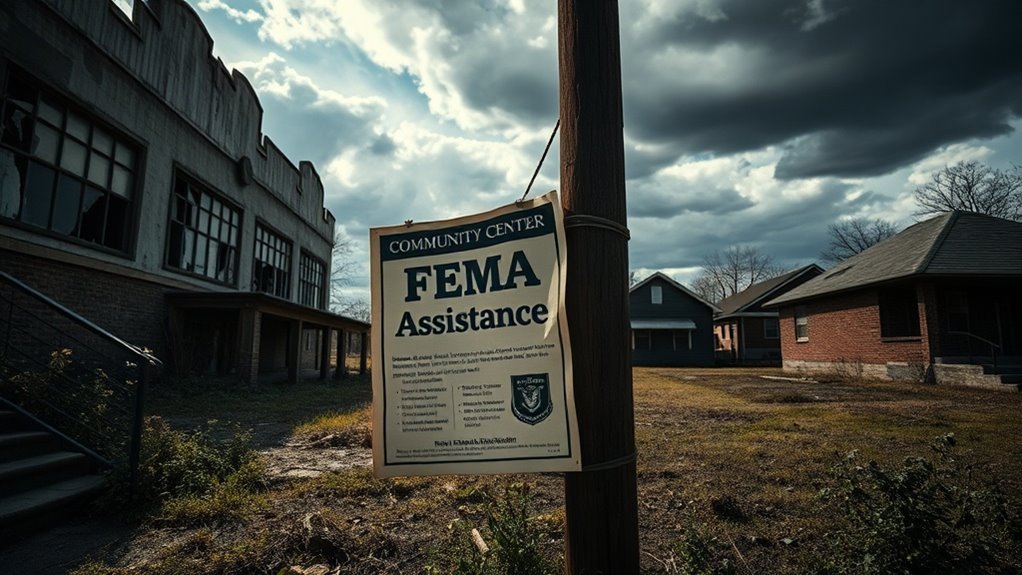Consequences of Non-Compliance Under FEMA
Non-compliance with the regulations under the Foreign Exchange Management Act (FEMA) in India can have serious repercussions for both individuals and communities. Such non-compliance may result in issues related to eligibility for certain benefits or funding, leading to delays or cancellations of essential projects that are critical for recovery and development efforts.
Moreover, failing to adhere to FEMA guidelines may invite legal consequences, including civil liabilities and potential criminal charges for violations of foreign exchange regulations. This not only jeopardizes individual interests but also undermines the overall trust within the community, making collaboration and cooperation among stakeholders more challenging.
Understanding the significance of compliance with FEMA is crucial for an effective response to financial and regulatory situations. It is important to stay informed about the laws and regulations to ensure that you contribute positively to your community’s resilience and development.
Key Takeaways
- Non-compliance with Indian disaster management regulations may result in ineligibility for state and central government funding, leading to delays in recovery efforts and affecting community safety.
- Violations of the provisions set forth in the Disaster Management Act, 2005 can lead to civil liability and possible legal actions against individuals or local authorities.
- Failure to adhere to guidelines for grants under the National Disaster Management Fund may result in rejection of applications, jeopardizing future funding opportunities.
- A lack of public trust can emerge from non-compliance with disaster management protocols, complicating community cooperation in future emergency responses.
- Ignoring procedural standards established by the National Policy on Disaster Management could increase vulnerability and decrease resilience within affected communities during crises.
Understanding FEMA Regulations

When engaging with Indian laws and regulations, you’ll find they encompass a wide range of guidelines aimed at managing disaster response and recovery effectively.
These regulations outline how resources are allocated, ensuring that assistance goes where it’s needed most during emergencies. It’s essential to understand the requirements for eligibility, documentation, and compliance to secure aid.
Regulations dictate resource allocation, ensuring timely assistance reaches those most in need during emergencies. Understanding eligibility and compliance is crucial.
Familiarize yourself with terms like National Disaster Response Fund (NDRF) and State Disaster Response Fund (SDRF), which cater to various needs based on the scale of the disaster. Additionally, understanding FEMA regulations is crucial for ensuring compliance when seeking foreign investment in startups.
Also, be aware of the timelines and procedural steps involved in applying for assistance.
Types of Non-Compliance
Non-compliance with Indian laws and regulations can take various forms, each carrying its own set of consequences. One common type is failing to adhere to construction codes and safety standards as laid out by the National Building Code, which can jeopardize safety during disasters.
Another form is neglecting to properly manage or allocate funds designated for disaster management and relief efforts, leading to financial mismanagement. Additionally, your organization may face non-compliance issues if it fails to maintain accurate documentation required for disaster recovery initiatives, as mandated by relevant guidelines.
Moreover, not following public notification and community engagement protocols, such as those stipulated under the Right to Information Act, can hinder local preparedness and transparency.
Lastly, if you disregard training requirements for your emergency management personnel as outlined in the Disaster Management Act, you risk a poorly coordinated response in times of crisis. Understanding these types of non-compliance can help you identify critical areas needing attention to ensure adherence to regulations and promote effective disaster management in India. Furthermore, establishing proper documentation practices is essential to minimize the risk of violations and ensure compliance with federal assistance measures.
Impact on Federal Funding

When you fail to comply with regulations set forth by Indian authorities in disaster management, you risk facing substantial challenges regarding funding eligibility.
This can result in project delays or even cancellations, significantly hindering recovery efforts in your community.
Understanding the implications of these regulations is crucial for effectively managing resources and ensuring timely assistance during crisis situations.
Funding Eligibility Issues
Although government funding can provide essential support during disasters, failing to comply with Indian regulations can jeopardize your eligibility for these resources. You might think that once you apply for funding, it’s guaranteed, but that’s not how it works.
Non-compliance with grant requirements, such as improper documentation or missed deadlines, can result in denied applications. Even minor violations can lead to funding delays or reductions. It’s vital to stay informed about relevant guidelines and ensure that all your paperwork is in order.
If you’re found in violation, you may face more than just lost funding; future assistance could also be at risk. To secure the help you need, prioritize compliance and establish a solid understanding of the expectations set forth by Indian authorities.
Project Delays and Cancellations
Project delays and cancellations can significantly compromise your access to government funding in India, particularly if they arise due to non-compliance with established regulations.
When projects are delayed or discontinued, it’s not only the schedule that faces disruption; your funding could also be adversely affected. Here’s how:
- Funding may be suspended until you address compliance issues.
- Failure to comply with regulations can result in penalties, impacting project viability.
- Stakeholder confidence may wane, affecting future project approvals and grants.
- You could encounter increased scrutiny or limited funding options in subsequent ventures.
To avert these negative outcomes, ensure that you’re consistently adhering to the requirements set forth by Indian laws and regulations.
Maintaining compliance not only helps keep your project on schedule but also protects your vital funding sources. Furthermore, understanding sectoral caps within the Foreign Direct Investment (FDI) policy is crucial for attracting investment without encountering legal hurdles.
Proactively manage your compliance to navigate your funding landscape effectively.
Legal Ramifications for Individuals
Non-compliance with the National Disaster Management Act and regulations set forth by the National Disaster Management Authority (NDMA) in India can lead to significant legal ramifications for individuals. Violations of these regulations may result in serious consequences, including civil liabilities, potential lawsuits, or even criminal charges, depending on the nature and gravity of the infraction. Understanding these implications is crucial for anyone involved. Here’s a brief overview of potential legal issues you could encounter:
| Consequence | Description | Example |
|---|---|---|
| Civil Liabilities | Responsibility to compensate affected parties | Liability for damages to property |
| Legal Action | Lawsuits initiated by those negatively impacted | Neighbors filing suit for losses |
| Criminal Charges | Prosecution for offenses related to disaster management | Offenses like fraud or negligence |
Staying informed and compliant is essential to safeguarding yourself from these potential risks under Indian law.
Community Safety and Vulnerability

When disaster strikes, community safety in India often depends on the collective preparedness and resilience of its members. It’s vital for you and your neighbors to unite, fostering strong bonds that enhance safety and adherence to relevant laws and regulations.
Here are several ways to strengthen community resilience while considering the local legal framework:
- Emergency Plans: Collaborate to develop clear emergency response plans that comply with local authorities’ guidelines, ensuring everyone understands their roles during crises.
- Community Training: Engage in workshops and training programs approved by local government bodies to acquire skills such as first aid and CPR, as well as knowledge about disaster management as mandated by the National Disaster Management Act.
- Communication Networks: Set up reliable and lawful channels for disseminating critical information during emergencies, utilizing platforms aligned with the Information Technology Act to maintain security and confidentiality.
- Resource Sharing: Form groups to share resources, including tools and shelters, ensuring that such arrangements adhere to safety regulations and local governance policies, promoting a cooperative spirit among community members.
Long-term Consequences for Local Governments
Community resilience is crucial in determining how local governments in India respond to disasters. However, the implications of non-compliance with regulations set forth by the National Disaster Management Authority (NDMA) can be severe and enduring. When local authorities neglect these regulations, their communities may miss out on essential support and resources during emergencies, putting them at greater risk. This can hinder the development and maintenance of crucial infrastructure and emergency response capabilities.
Additionally, failing to adhere to established guidelines can result in legal repercussions, placing further burdens on local governance. The challenge of recovering from disasters can become significantly more difficult, leading to prolonged disruptions in community life.
A decline in compliance can also diminish public trust in local administrations, complicating future cooperation between the government and the community. Ultimately, the long-term ramifications of disregarding NDMA regulations extend beyond immediate governance challenges, impacting the safety, health, and resilience of communities for years to come.
Steps to Ensure Compliance
To ensure compliance with the regulations established by the National Disaster Management Authority (NDMA) of India, local governments should adopt a proactive approach.
By implementing specific strategies, adherence to guidelines issued by the NDMA can be effectively promoted.
- Conduct regular training for staff to stay updated on NDMA requirements and disaster management laws in India.
- Establish clear communication channels with state and central authorities to seek guidance and support.
- Create a compliance checklist to routinely assess current practices against applicable laws and regulations.
- Involve the community in disaster preparedness efforts to foster awareness and active participation in safety initiatives.
These actions won’t only enhance compliance but also strengthen the overall resilience of your community against disasters.
Questions
How Can Communities Educate Citizens About FEMA Compliance?
Communities can educate citizens about FEMA compliance through a variety of methods, such as workshops, informational flyers, community meetings, and online resources. In India, engaging local leaders and utilizing social media platforms can effectively spread awareness and encourage participation in compliance efforts. Additionally, leveraging local law enforcement and regulatory agencies to provide insights on compliance can further enhance understanding and adherence to the relevant laws and regulations under the Foreign Exchange Management Act (FEMA).
Are There Exemptions to FEMA Regulations for Small Municipalities?
Yes, small municipalities in India can have exemptions under certain circumstances in relation to FEMA regulations. However, it’s essential to review the specific criteria and guidelines, as these exemptions vary and can depend on factors such as the size of the municipality and its administrative capabilities.
What Resources Are Available for Compliance Training?
You can access resources such as the National Disaster Management Authority (NDMA) website, local training workshops conducted by state disaster management authorities, online courses offered by various educational platforms, and community engagement events organized by NGOs and local bodies. These options ensure you are well-informed about compliance requirements and best practices in accordance with Indian laws and regulations for emergency management.
How Does Non-Compliance Affect Insurance Premiums?
Non-compliance with Indian laws and regulations can significantly impact your insurance premiums. Insurance providers often perceive individuals or businesses that do not adhere to legal requirements as higher risk. This perception can lead to a review of your coverage and potential adjustments to your premium rates. By ensuring compliance with regulations, you not only safeguard yourself legally but also contribute to maintaining more favorable insurance terms.
Can Individuals Appeal Fema’s Compliance Decisions?
Yes, you can appeal compliance decisions made by FEMA (Financial Intelligence Unit of India). It is crucial to adhere to the proper procedures and deadlines specified in their guidelines. This process enables you to submit additional evidence or clarify any misunderstandings related to your case.







